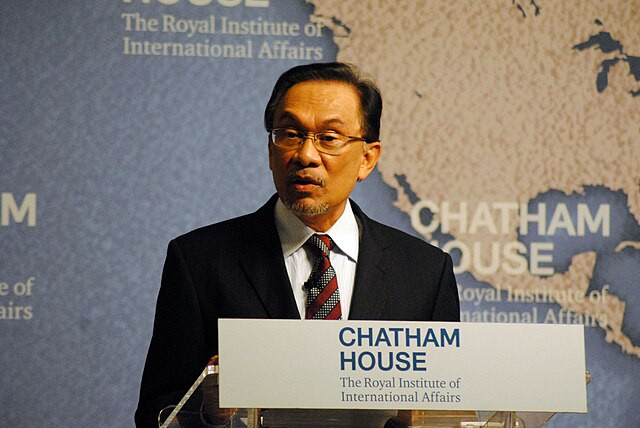Malaysia's Prime Minister Anwar Ibrahim announced on Thursday that the nation will continue its oil and gas exploration activities in the South China Sea, despite China's objections. Speaking from Vladivostok, Russia, where he is on an official visit, Anwar emphasized that these activities are well within Malaysia's territorial waters and are not intended to provoke or antagonize Beijing, with whom Malaysia maintains amicable relations.
"Of course, we will have to operate in our waters and secure economic advantage, including drilling for oil, in our territory," Anwar declared during a televised press conference. He acknowledged that China has sent "one or two" protest notes regarding Malaysia's exploration activities but maintained that Malaysia's operations are lawful and within its exclusive economic zone (EEZ). "We have never denied the possibility of discussion (with China). But it doesn't mean we have to stop the operation in our area," Anwar added.
The controversy stems from China's expansive claims in the South China Sea, marked by the so-called "nine-dash line" that Beijing uses to assert sovereignty over nearly the entire maritime region. This claim overlaps with the 200-nautical-mile EEZs of several Southeast Asian nations, including Malaysia, the Philippines, Brunei, Vietnam, and Taiwan. An international arbitration tribunal in The Hague ruled in 2016 that China's claims had no legal basis under international law, a decision Beijing has consistently rejected.
Anwar's comments came in response to a diplomatic protest note from China, which was leaked and published by the Philippine Daily Inquirer on August 29. The note accused Malaysia of infringing on Chinese territory through its oil exploration activities near the Luconia Shoals, an area located off the coast of Sarawak state on Borneo Island. The Malaysian Foreign Ministry has since launched an investigation into the leak of the classified document.
Despite the diplomatic tension, Anwar was careful to emphasize that Malaysia's policy is not one of aggression. "We have never intended in any way to be intentionally provocative, unnecessarily hostile. China is a great friend, but of course, we have to operate in our waters and secure economic advantage, including drilling for oil in our territory," he explained. Anwar reiterated that Malaysia respects the sovereignty of other nations and expects the same respect in return.
This is not the first time Malaysia has faced such protests from China. However, unlike the Philippines, which has often publicly clashed with Beijing over territorial disputes in the South China Sea, Malaysia has traditionally favored quieter diplomatic channels. This approach is partly driven by the desire to preserve strong economic ties with China, which has been Malaysia's top trading partner since 2009.
Anwar's comments highlight Malaysia's delicate balancing act in navigating its relationship with China while asserting its rights under international law. The South China Sea is rich in natural resources, and the area near Sarawak is of particular interest due to its potential for significant oil and gas reserves. Malaysian state energy firm Petronas operates in this region and has had several encounters with Chinese vessels in recent years.
The Prime Minister's firm stance is a clear message to Beijing that Malaysia will not be deterred from exercising its rights within its EEZ. "They know our position," Anwar said. "They have claimed that we are infringing on their territory. That is not the case. We say no, it is our territory. But if they continue with the dispute, then okay, we will have to listen, and they will have to listen."





